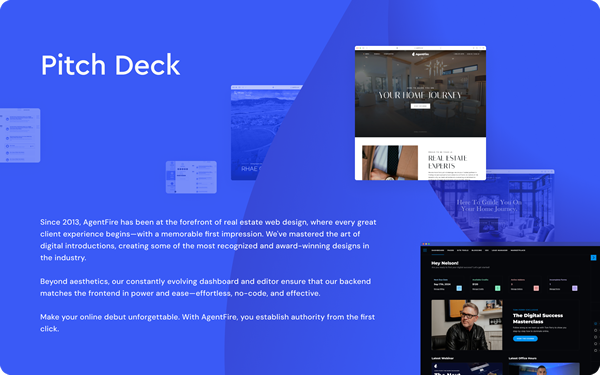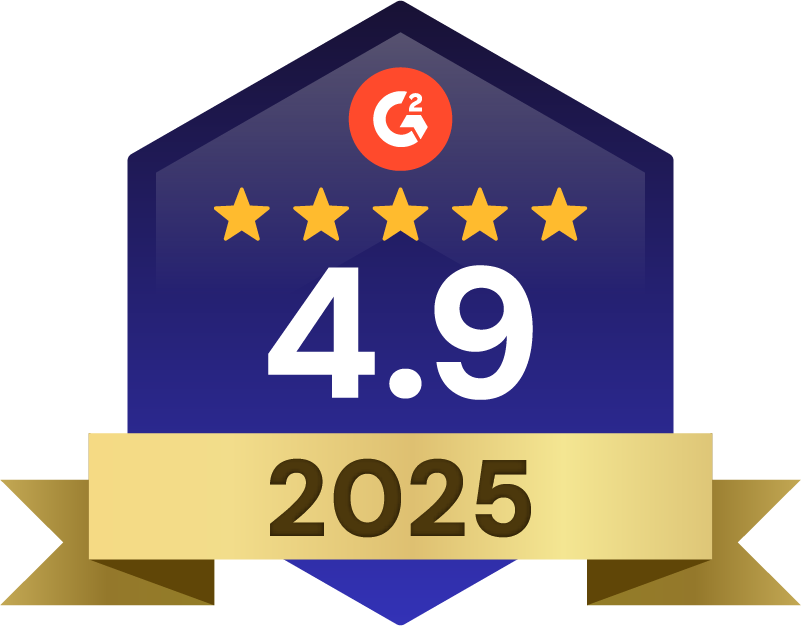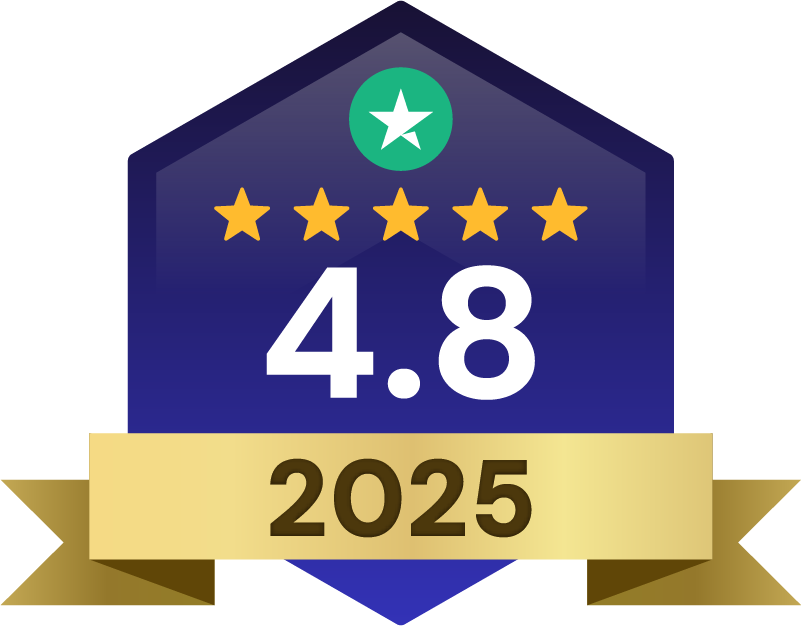Well-written real estate blogs draw in tons of interested buyers and sellers. What many agents do not understand is how to develop content that generates leads. Let's go over the "dos and don'ts" of basic blogging concepts.
Content Marketing
Real estate blogging can bring massive traffic to your real estate, improve rankings and increase conversions.
The issue is that many agents don’t understand how to develop high-quality content that will achieve this aim. In the following article, we’ll go over the “dos and don’ts” of basic blogging concepts that can make a world of difference in your online visibility.
Your real estate blogging helps boost overall traffic levels from visitors, and increases lead-generating activity in other areas of your site.
Many agents turn a blind eye to blogging because they already feel overwhelmed with work or don’t believe they have the skills to write high-performing content.
Why Focus on Real Estate Blogging?
At its core, blogging is about educating clients and other shareholders in exchange for increased brand awareness, thought leadership in your niche market, and creating shareable content to expand your brand visibility.
Brand awareness: Blogs give you a voice and a place to share your professional opinion in a casual environment that you control.
Thought leadership: consistently providing high-quality content encourages people to see you as a trusted expert in your field with a wealth of knowledge to share. Readers will keep coming to your website if they know that it’s a great source of content and when it’s time to buy a home, you’ll be top of mind.
Shareable content: Blog content can be repurposed into a variety of social posts or other types of marketing content. Additionally, blogs can be updated overtime to be more timely without having to write content from scratch.
Generate leads: Let’s not kid ourselves; what agents really want is to see professional growth and a boost to their client leads. When readers subscribe to your blogs, download your lead magnets, or even simply visit your site, you can acquire their contact information by form or by pixel.
Increase web traffic: The more useful web content you have online, the more likely it is that search engines will able your website as trust worthy. The more authority your site has, the more likely it is to be seen by online users searching for real estate material. Once readers are on your real estate website, they are likely to browse your other pages such as listings and client reviews.
Recommended topics will vary by location and real estate agent – but it’s crucial that you determine some underlying characteristics of your most common transactions and clients.
A good blog post can have years worth of value online and 1000’s of visits from potential clients.

Developing Content Ideas
Answer Questions
An easy and simple way to find out what your clients want to know is simply to ask them! Think about the loads of questions you receive from each of your clients. Note them down as your receive and answer them, then each question can become its own blog post.
Leverage Neighborhoods
Keep an eye on happenings in your hyperlocal area and write blogs related to exciting news in that hyperlocal area. Not only could you become a real estate info resource, but you will also be known for proving helpful articles that serve the community.
An example of a neighbourhood-specific article might be:
“5 New bars in (Your Hyperlocal City) to Check out this Weekend.”
Alternatively, you could focus on standout members of the community who deserve a bit of recognition.
For example:
“(Name of local school) class planted over 1000 trees with her class in the last year.”
Keep an Eye on the Market
Most clients are not nearly as informed about the ups and downs of the real estate market or why these changes occur. The media has a knack for stirring up panic, especially when covering real estate. Information from someone on the front lines can feel more trustworthy and thorough than the confusing words of an economic specialist. Remember, people want to understand the market – especially if it is not leaning in their favour. If you have the ability to stay ahead of the average person, you can offer a unique angle that only real estate agents can provide.
Review Google Search Results
At the bottom of every Google search results page, you’ll see a box of suggestions labelled, “people also ask”. This is where you’ll find the phrasing that your clients are using. By developing content on topics that people are already searching for, you are more likely to come across warm leads.
Timely Topics
Are the holidays coming up? Perhaps the seasons are changing? Timely articles are a great opportunity to connect with a wide pool of shareholders. They are all experiencing the same things at the same time. No matter what type of real estate niche you serve, be it commercial real estate, investment properties, family homes, etc., everyone experiences summertime at the same time (for example).
Case Studies
Case studies are a great way to provide social proof while building content. This is especially true for new agents who may not have a ton of sales under their belt. People interested in real estate are will see your case study as an opportunity to learn more about the industry and judge the quality of your service.
Even a couple of detailed case studies can swing a reader’s opinion without pushing.
For a complete list of detailed topics, check out these 72 real estate blog topics sure to impress and offer tremendous value to your readers.
Blog Content Dont’s:
Do Not Constantly Write about Yourself.
Your readers may be curious to know about your journey and background, but the bulk of that can be put in your “About Page”. Your blog is where visitors go to look for content that is specific, timely, and related to the specificities of their own experience. Leave credentials and mind-blowing sales numbers to your other landing pages or social media profiles.
It’s best to offer a mix of content over the weeks to keep readers engaged and curious. whatever you decide, be sure to stick to your plan and post biweekly, at the least. If you only post occasionally or randomly, it’s difficult to build a loyal readership that looks forward to your posts. As readers get accustomed to receiving your content, they’ll keep an eye out for it. Frequent posting, also increases SEO: our next topic.
Do Not Exclusively Focus on Listings.
Yes, the majority of your marketing efforts do revolve around your listings being highly visible on the web. However, in the unique case of a blog, your web visitors are looking for unique information that will help them make the right choices as they sort through your listings.
This is exactly why we do not recommend blogging your listings for sale:
- Listings have a temporary “shelf life” where they will go pending before is no longer of any value.
- Anyone who is not actively searching for a home of that exact type is not going to view your article.
- If you only post listings on your social media, you are training friends/followers to regularly ignore your posts.
Preparing SEO Content
The power of SEO is often underestimated by non-marketing professionals, but it’s valuable is incomparable SEO stands for search engine-optimized content. Think about this, if your real estate website is located on the second page of Google search engine results or later, it’s as good as dead in terms of visibility. On the other hand, results that appear on the first-page result have a 40% chance of being clicked.
SEO writing is all about employing writing tools and techniques to get your page to the first position of the search results.
While there are many professional real estate marketing experts that could push your page further up the rankings (for an arm and a leg), some basic tips will get you pretty far.
Answer Specific Questions
Google’s job is to find the best answers to your questions. Keep this in mind as you’re writing and looking for topics that will connect with your ideal client persona. A great SEO technique is to work these questions into your titles or headings in order to get a higher ranking and possibly have your article put in the Google Answer box.
Emphasize Strategic Keywords (short and long tail)
When search engines are looking for the best real estate blogs for a specific question, they scan the page for related words that indicate the right information can be found on that specific page.
In blogging, long-tail keywords are king. These are keywords that are strung together in a short phrase or question. For example, “buy a property in Orange County” is more likely to return precise results than “buy a house”.
Ideally, we suggest that keyword phrases be used as often as possible throughout your article, as long as they fit naturally. However, SERPs (search engine results pages) may flag your article as spam if your keywords are overused.
As search engines get increasingly more precise and strict, the consequences of keyword stuffing become more serious. There’s a chance that your article won’t be indexed at all, meaning it will never appear in any of your target audience’s searches, nor can it be edited and restored.
Based on SEO experts at Yoast, your keyword should make up approximately 1-2% of your written blog content.
For more details about properly using keywords, check out this article: Real Estate Copywriting Rules to Outsell the Competition.

Blog Writing Tips
Believe it or not, writing is the easiest part of the blogging process. Once your topic and research are prepared, creating content is much easier.
Write Clearly and Concisely
The first and most important rule for real estate content writers to remember: most of your readers are not real estate professionals!
Your blog content should be structured and written clearly enough that even readers with no knowledge of the real estate industry can walk away feeling as if they’ve learned something. In short, this means, no real estate industry lingo or acronyms and clear spacing between text and separate ideas. When you’re feeling fancy, remember that content that is difficult to digest only pushes visitors off your page onto the next.
No one wants to read a massive lump of text. A mix of long paragraphs, short sentences, images, and bullet points encourage your reader to scroll down the page.
Hook Them with Your Headline
Sometimes all it takes is a great hook. Your headline should tell readers what to expect and spark their curiosity so that they feel intrigued enough to click.
Consider the difference between ” How to a find Beach house” compared to “3 Tips to Finding the Perfect Beach House”. One is unexciting and broad while second option is specific and concise.
Insert High-Quality Images
More than ever, people are hooked on visual-heavy content (including real estate agents like yourself). In order to keep your visitors on your page, use visual elements and spread them evenly throughout your article. Visual elements include images, videos, infographics, memes, etc.
Ideally, each real estate blog will feature a range of visual elements to keep your blog viewers stay excited about your content.
Tone
Unlike formal client content such as neighbourhood guides or market reports, blogs are meant to be more relaxed. Keep a casual conversational tone, as if you are speaking with your reader one-on-one. Blogs are read for enjoyment, so it would definitely push readers away if they felt as if they were reading an essay.
Ace Your Call to Action (CTA)
Let’s be honest. At the end of the day, most real estate industry professionals want improved lead generation. As valuable it is to provide content that your readers love, the intention is that they become home buyers or sellers at some point.
Your CTA at the end of your blog is your final opportunity to get clients to take action toward working with you. Whether you’d like readers to fill out a contact form, further explore your website, follow you on socials, it’s up to you. The goal is to make sure that their journey with your business doesn’t end when they close the webpage.
Outsourcing Your Real Estate Articles
While good blog posts are a big part of an overall success story for any real estate website, you do need to consider where your time is best invested. Hiring ghostwriters for creating new content on the fly can be a great alternative for an extremely overwhelmed agent.
This is an excellent way to boost productivity and focus where it needs to be while ensuring that the value of your site continues to increase over time.
Blog Assist
AgentFire clients have the option of selecting our Blog Assist integration to receive professionally written and customizable articles each week. Our professional writers will share a blog post with you that can then be adjusted and edited with some of your own hyperlocal keywords.
Have blogs auto-post, or post as drafts so you can edit them and add your own unique value!
Non-clients can check out other freelancing resources. A few example companies below provide on-demand original writing services:
Upwork
Upwork has one of the largest pools of online freelancers to choose from. Conduct a search and invite candidates rather than letting them apply.
If you go with Upwork, search for the terms “writer” and “real estate” in conjunction. This will best define your targets.
Scripted
Gain access to thousands of pre-screened, expert writers.
Scripted offers different one-time-fee packages for a wide variety of writing purposes. They take care of everything from blogs to social media posts.

Your Go-To Strategy For Real Estate Blogs
Now that you understand all of the steps to write an excellent blog, it’s time to develop a go-to strategy that you can refer to in order to pump out high-quality blogs quickly.
Setting up a blogging strategy will help you avoid redundant blog formats and topics. Additionally, the process will be noticeably faster if you feel confident jumping in, rather than fumbling around until you manage to put a blog together.
An example of a go-to blogging strategy might look like this:
- Conduct research using one of our suggested resources
- Choose the related keywords using google research
- Conduct online research on said topic
- Choose a headline and rough structure
- Organize researched points within the chosen structure
- Simplify writing and add a casual tone
- Add visual breaks between chunks of text to create interest
- Close with a killer CTA
- Review your article for errors and add internal links, if possible
- Post to your real estate website!
- Ask for feedback from acquaintances to see what you can improve on in your next blog
Make Real Estate Articles Fun… You’re the Expert!
Whenever you are blogging a topic or article, remember that you may have a wealth of useful knowledge that you are taking for granted. Think about the information that will help your clients that will simplify the process when you begin the home buying/selling process with them.
All those years learning the intricacies of escrows, REOs, inspections, disclosures, HOA’s, etc are ripe for the picking when it comes to being able to educate and interest your customers with your knowledge.
Let your personality, shared interests, and charm shine through in your writing. You are building a relationship, and that requires helping your client believe in you.
Good luck and happy real estate blogging!







